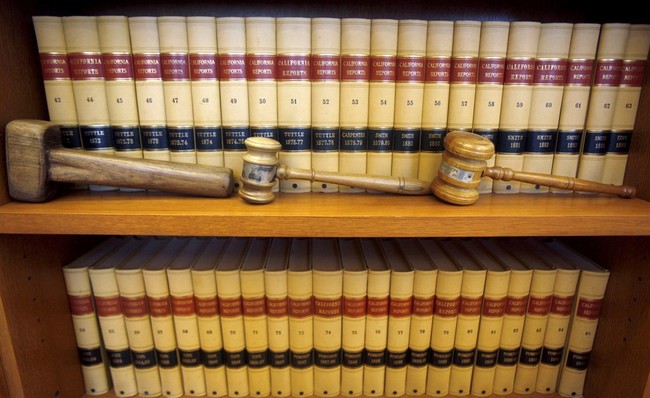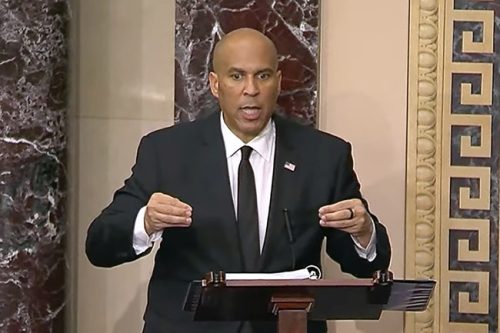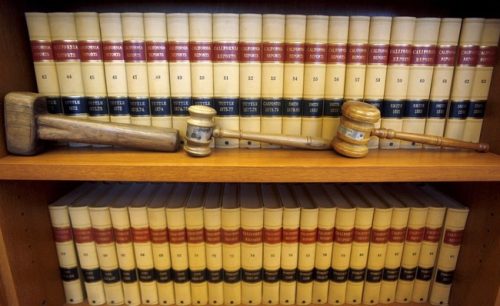Do No Harm and the American Alliance for Equal Rights have sued Michigan firm Buckfire & Buckfire, P.C., challenging two scholarships that the plaintiffs say exclude applicants based on race and violate federal civil rights law.
Two advocacy groups filed a federal suit after finding that Buckfire’s scholarship criteria favor applicants who are “a member of an ethnic, racial, or other minority” or who show a commitment to diversity. The groups say the awards are race-based and that the firm’s practices conflict with long-standing civil rights protections and professional obligations.
The complaint charges that Buckfire’s “Medical Diversity” and “Law School Diversity” scholarships violate Section 1981 of the Civil Rights Act of 1866, which bans racial discrimination in contracting. That legal foundation frames the plaintiffs’ claim: race cannot be a qualifying or disqualifying factor when private benefits involve contractual choice.
The suit quotes the firm’s own language for the law scholarship, which reads, “The scholarship was created in 2013 as part of the law firm’s commitment to helping law students who are in need of financial assistance achieve their academic and professional dreams. In order to be considered for the scholarship, the student must be a member of an ethnic, racial, or other minority, or demonstrate a commitment to issues of diversity within their community. The scholarship will award $2,000 to one student selected by our scholarship selection committee.” That $2,000 award and the explicit race language are central to the plaintiffs’ argument.
The Medical Diversity scholarship uses similar wording: “Applicant is a member of an ethnic, racial, or other minority or any individual who demonstrates a defined commitment to issues of diversity within their community.” Those lines are cited in the complaint to show a pattern rather than an isolated policy.
The filing also notes professional and ethical obligations facing lawyers, and it highlights the firm’s record: since 2014 the suit says 25 scholarships have been awarded, and none of the recipients are White. Plaintiffs argue that a law firm’s public profession of equal justice makes a race-exclusive scholarship especially problematic under the rules lawyers must follow.
Dr. Stanley Goldfarb, Chair of Do No Harm, issued a statement about the discriminatory nature of these scholarships: “Racial discrimination has no place in healthcare – especially when it comes to training tomorrow’s physicians<b data-pasted=”true”>.</b> Students who demonstrate the highest levels of medical knowledge and expertise should be rewarded for their merit, as opposed to elevating candidates based on immutable characteristics with no bearing on qualifications. It is particularly egregious to see such a violation from a law firm, which directly violates their code of conduct and professional obligations. We are confident that the District Court will put an end to this facially discriminatory behavior. Do No Harm remains committed to rooting out divisive identity politics from medicine wherever it rears its ugly head.”
Edward Blum of the American Alliance for Equal Rights added a blunt assessment: “This racially exclusive scholarship is illegal. The fact that a law firm is flagrantly discriminating against certain individuals because of their race is flabbergasting. The goal of this lawsuit is not to eliminate Buckfire’s scholarships but to ensure they are based on legitimate criteria, such as financial need or merit, rather than race. There are many deserving students from all races and ethnicities who need help affording law and medical school. Excluding some of them because of their race is unfair and unlawful.”
According to the complaint, the plaintiffs seek an injunction to end the race-based eligibility requirements and ask for nominal damages tied to the civil rights violation. The filing frames the lawsuit as a narrow legal remedy aimed at removing race as an explicit criterion from privately funded scholarship awards.
This case arrives amid broader legal fights over when and how race can be considered in education and private programs. The challenge tests whether privately administered scholarships that single out racial categories can stand in the face of Section 1981 and the duties that bind legal professionals.






